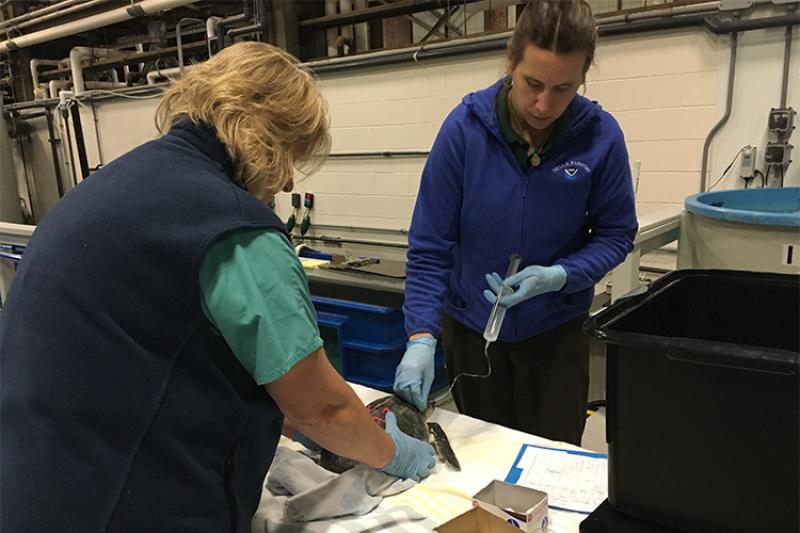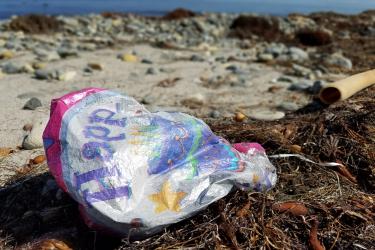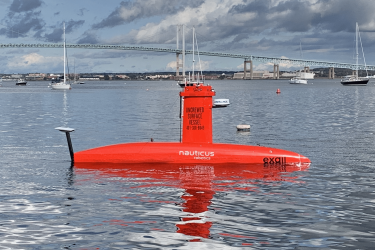What do you do as the Sea Turtle Stranding and Disentanglement Coordinator for NOAA Fisheries Greater Atlantic Region?
I oversee a network of organizations that respond to and care for stranded (sick, injured, or dead) and entangled sea turtles. There are many facets of this role, including coordinating the placement of sick or injured sea turtles in rehabilitation facilities, solving state and federal permitting issues. I help locate pilots and planes to carry turtles south for release into warmer waters and consistent communication through the network. I also manage the important data collected from these events.
What do you like best about your job?
I enjoy working with the dedicated, caring staff and volunteers in the network. They impress me every day with their tireless efforts to rescue these endangered and threatened sea turtles.
What’s the hardest part of your job?
The hardest part is witnessing the conflict between sea turtles and human activities, such as boating, recreational and commercial fishing, and marine debris. Documentation of strandings is a vital source of information about the threats facing sea turtles. However, it’s difficult to see the results of these conflicts and not have immediate solutions. We continue to try to understand these conflicts and brainstorm new ways to address them.
How long have you been in this position, and what did you do before?
I started my job as a marine biologist with NOAA Fisheries in 2010. Prior to that, I worked as a Senior Biologist for the New England Aquarium Rescue Program to support stranded sea turtles and marine mammals. I also served as Assistant Director and Stranding Coordinator for the Whale Center of New England. My experience working hands-on with stranding response and rehabilitation provided the background I use every day. I understand the needs of network organizations and how best to facilitate their efforts to rescue and rehabilitate sea turtles.
What educational background helped you get to your career today?
I have a Bachelor’s and a Master’s degree in marine biology. In my Master’s program, I focused on the ecology of humpback whales. During and following school, I volunteered wherever possible to get experience with non-profit organizations and researchers. That helped me to narrow down what avenue of marine biology I wanted to pursue.
Tell us something most people don’t know about you.
I enjoy my job at NOAA and I feel that it plays an important part in the conservation of sea turtles. With its consistent hours, it is also perfect for my current life stage—I am a mother of three kids seven and under. But, there’s a part of me that wishes I was out on a little boat, bouncing over waves, doing research on large whales. Or providing treatment to hundreds of cold-stunned sea turtles in a rehabilitation center. Deep down, I am a hands-on biologist who happens to be in an office job.
Do you have any advice for young people starting their careers?
My advice is to get as many experiences as you can early on in your career. Volunteer. Do internships. Be a research assistant. Explore government, non-profit, consulting, and university positions. Get a feel for everything that’s out there. Crossing things off the list of possibilities is just as important as finding things you like. Sometimes you’ll be surprised by what interests you. All of those experiences not only narrow down your career path, but they also create an impressive resume and build your list of references.





